28, November 2019
Southern Cameroons Crisis: Head of Commonwealth and AU Secretary General on joint peace mission to Cameroon 0
The Chairperson of the African Union (AU) Commission, HE Moussa Faki Mahamat; the Secretary-General of the Commonwealth, The Rt Hon Patricia Scotland QC; and the Secretary-General of the Organisation Internationale de la Francophonie (OIF), HE Louise Mushikiwabo, are visiting Cameroon from 26 to 28 November 2019 on a joint peace mission.
While in Cameroon they will meet with the country’s leadership and other stakeholders to encourage momentum in efforts to address the conflict [in the northwest and southwest regions of the country].
A Commonwealth spokesperson said: “Cameroon is a valuable member of the African Union, the Commonwealth and La Francophonie whose rich diversity is to be celebrated. Every Cameroonian deserves peace and a return to normality.”
The spokesperson added: “The Commonwealth welcomes the outcomes of the recent Major National Dialogue held in Cameroon, as well as other existing home-grown initiatives aimed at addressing the conflict.
“We look forward to engaging with President Paul Biya and other stakeholders on the progress that is being made in addressing the root causes of the conflict, and how we can lend our collective support in promoting lasting peace in the country.”
Life in Cameroon’s two English-speaking provinces has been brought to a standstill by three years of conflict, which has cost about 3,000 lives and forced 500,000 from their homes.
The dispute had been simmering for decades, but boiled over in 2016, when teachers and lawyers started to protest against the use of French in schools and courts.
The government in the majority French-speaking country responded with lethal force, provoking rebels to declare independence for the region they call “Ambazonia”, which in turn led to an even stronger military crackdown.
This is what the latest Human Rights Watch Report says about the situation in Cameroon:
Cameroon, a country previously known for its stability, faced violence and serious human rights abuses in 2018.
The country endured abusive military operations against a secessionist insurgency in two Anglophone regions, attacks by the Islamic militant group, Boko Haram, in the Far North, and a worsening humanitarian crisis. President Paul Biya, 85, won a seventh seven-year term on October 7.
In the South West and North West, government security forces have committed extrajudicial executions, burned property, carried out arbitrary arrests, and tortured detainees. A Human Rights Watch report documented a range of abuses by both sides in the Anglophone regions, including arson attacks on homes and schools. According to the International Crisis Group, government forces and armed separatists killed over 420 civilians in the regions since the crisis escalated in 2017.
The humanitarian consequences of the Boko Haram attacks and separatist insurgency are of growing concern. As of November, the United Nations estimated that more than 244,000 civilians were displaced in the Far North and 437,500 in the Anglophone North West and South West regions. About 32,600 Cameroonians found refuge in Nigeria. Also, Cameroon has continued to forcibly return Nigerian asylum seekers, fleeing Boko Haram attacks in northeastern Nigeria.
While the government maintained it did not tolerate serious crimes committed by security forces, it failed to demonstrate progress in investigating and punishing them.
On October 22, Cameroon’s Constitutional Council validated Paul Biya’s reelection, with 71.28 percent of the votes. The council’s decision was immediately contested by one of Biya’s rivals, Maurice Kamto, who claimed the results had been altered. In early November, dozens of pro-Kamto protesters were arrested in Bafoussam, Western region. Biya was sworn-in for a seventh term as president on November 6.
The Anglophone Crisis: Abuses on Both Sides
In the Anglophone North West and South West regions, the absence of a genuine political process to address decades-old grievances against the Biya government contributed to the radicalization of the discourse and tactics of Anglophone activists. Since mid-2017, Anglophone separatists have attacked government institutions and threatened, kidnapped, and killed civilians perceived to side with the government.
In 2016 and 2017, government security forces used excessive force against largely peaceful demonstrations organized by members of the country’s Anglophone minority who were calling for increased autonomy for their region. During demonstrations in late 2017, government forces used live ammunition, including from helicopters, against demonstrators and bystanders, killing at least a dozen people and injuring scores. Some individuals detained in the context of the demonstrations were subjected to torture and ill-treatment.
In October 2017, separatist leaders unilaterally declared independence of the North West and South West regions, and the formation of a new nation, Ambazonia. The following month, President Biya announced that Cameroon was under attack from terrorists and vowed to “eradicate these criminals.” The pace and scale of separatists’ attacks against security forces, government workers, and state institutions increased, especially following the arrest and deportation of 47 suspected secessionist activists from Nigeria in January 2018.
Violations by Government Forces
Human Rights Watch found that government forces responded to the growing separatist insurgency by carrying out abusive security operations against communities suspected of supporting secessionist groups. Security forces committed extrajudicial executions, used excessive force against civilians, tortured and abused suspected separatists and other detainees, and burned homes and other property in scores of villages.
During attacks documented by Human Rights Watch, security forces allegedly shot and killed over a dozen civilians, including at least seven people whom witnesses said had intellectual, psychosocial or physical disabilities who did not flee because they were unable or refused to. At least four older women died, burned alive, after security forces set their homes on fire.
Human Rights Watch also documented three cases where security forces detained people suspected of supporting the secessionist cause, and then tortured and killed them in detention. In a fourth case, Human Rights Watch analyzed evidence of torture filmed by perpetrators, who appear to be gendarmes. On September 24 and 27, a total of nine men were allegedly executed by security forces in the town of Buea, according to videos reviewed by Human Rights Watch and a report by the Centre for Human Rights and Democracy in Africa, a local nongovernmental organization (NGO).
Abuses by Armed Separatists: Attacks on Students, Teachers and Schools
To enforce boycotts of schools following protests by Anglophone teachers against perceived discrimination by the Francophone-dominated national government, separatist groups attacked and burned dozens of schools, threatened teachers, students and parents, kidnapped principals and violently attacked teachers and students. In March, people believed to be armed separatists attacked a high school dormitory in Widikum, North West region, and shot dead Emmanuel Galega, a student.
The pressure tactics forced the majority of schools to close during the 2016-2017 academic year, and as of May 2018 an estimated 42,500 children were still out of school, according to UN Office for Humanitarian Affairs (OCHA). Most schools did not re-open in 2018.
On April 30, Father William Neba, principal of St. Bede’s College, in Ashing near Belo, North West region, was reported abducted while celebrating mass with students. He was released two days later. The school suspended classes on the day of the abduction. In September, unidentified gunmen attacked a girl’s school in Bafut, North West region, kidnapping five pupils and severely wounding the principal.
In September, the government endorsed the Safe Schools Declaration, an international political agreement to protect education during armed conflict.
On November 5, up to 78 schoolchildren were reportedly kidnapped in Bamenda, North West region, by unknown gunmen. They were released two days later.
Refugee Rights
Cameroon hosts more than 350,000 refugees and asylum seekers, including 260,000 from the Central African Republic and at least 90,000 from Nigeria. Despite its long history of hosting refugees, Cameroon has forcibly returned tens of thousands of Nigerian asylum seekers since 2015. A 2017 Human Rights Watch report documented how soldiers used violence and abuse, including torture, against asylum seekers in remote border regions. Authorities also imposed unlawful restrictions on movement in Cameroon’s only official camp for Nigerian refugees. In August 2018, the UN High Commissioner for Refugees reported that between January and July, Cameroon unlawfully returned at least 800 refugees and asylum seekers to Nigeria.
Sexual Orientation and Gender Identity
Cameroon’s penal code punishes “sexual relations between persons of the same sex” with up to five years in prison. Police and gendarmes continued to carry out arrests and harassment of people they believe to be lesbian, gay, bisexual or transgender (LGBT). In April, police arrested four activists and a security guard at the office of AJO, an organization that works on HIV education with men who have sex with men (MSM), and other vulnerable groups. They spent a week in jail on spurious homosexuality charges before a lawyer secured their release. Cameroonian human rights organizations documented the arrest of at least 25 other men and at least two women on homosexuality charges in the first half of 2018. They also reported numerous cases of physical violence by private citizens targeting LGBT people.
Justice and Accountability
While the government has repeatedly promised to investigate crimes committed by security forces, it has not done so transparently or systematically.
Government officials told Human Rights Watch in June that while they conducted investigations, they did not want to make them public to avoid undermining the morale of government troops. However, the visible lack of accountability appears to have fueled abuses, like arson and torture, rather than ending them.
In July, the government finally granted access to ten Anglophone leaders who had been detained and deported from Nigeria to Cameroon in January. The individuals, held incommunicado for over six months, were permitted to meet their lawyers and the International Committee of the Red Cross.
The government dismissed video footage that emerged in July showing two women and two children being executed by men in uniform in Cameroon’s Far North as “fake news.” Only after an investigation conducted by Amnesty International demonstrated the killings took place in Cameroon did the government announce it had arrested six soldiers suspected of executing the civilians in the video.
Key International Actors
France, the United States, and the United Kingdom are Cameroon’s principal partners, primarily in the context of the counter Boko Haram operations in the country’s Far North region. Both France and the US provide Cameroon with military and security assistance and training.
The US and the UK are the only close allies of Cameroon to have voiced public concern regarding the ongoing situation in the Anglophone regions. The US has continued to provide military aid to Cameroon.
In February, the European Union called for proportionate use of force and accountability for abuses in the Anglophone region.
In September 2018, as the pace and scope of abuses continued to escalate in Cameroon’s Anglophone regions, the UN and African Union issued a joint communiqué calling on the government to facilitate access to humanitarian and human rights organizations and engage in an inclusive dialogue to address the root causes of the crisis.
The UN Security Council in August expressed concern about the situation in Cameroon’s Anglophone regions.
Source: Sierra Leone Telegraph








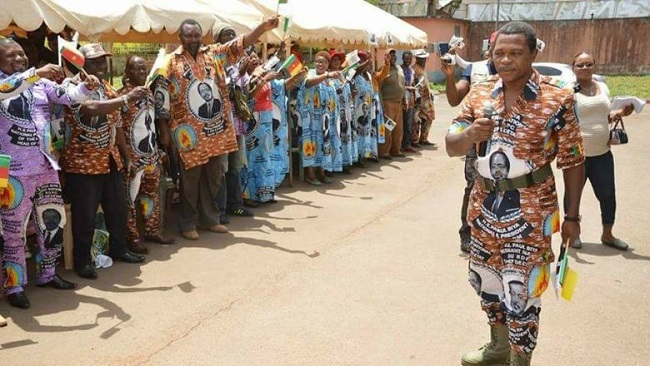


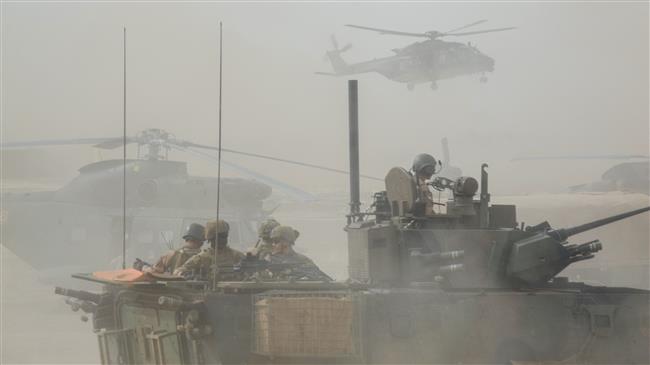
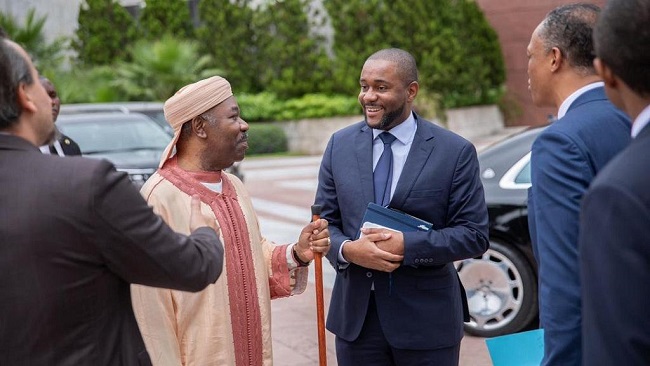














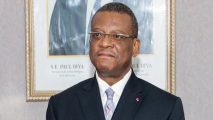

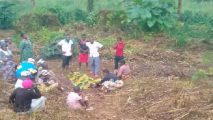

28, November 2019
Cameroon launches mobile money service aggregation platform 0
Cameroon’s communication minister has signed a decree setting the conditions and operating rules for USSD for access to the national electronic communications aggregation platform, Business In Cameroon reported. This platform aims to ensure fair interconnection conditions, reduce the costs of mobile financial transactions, and promote financial inclusion. It will give access to mobile financial services via the shortcode hash 237 hash.
Philemon Zo’o Zame, director of the Telecommunications Regulatory Agency (ART), said the platform is housed at the state postal service Campost, which manages it and is responsible for implementing the decree. Zo’o Zame is inviting network operators and electronic communications service providers to connect to it within 30 days, by 26 December, for the provision of mobile financial services.
Source: Telecompaper